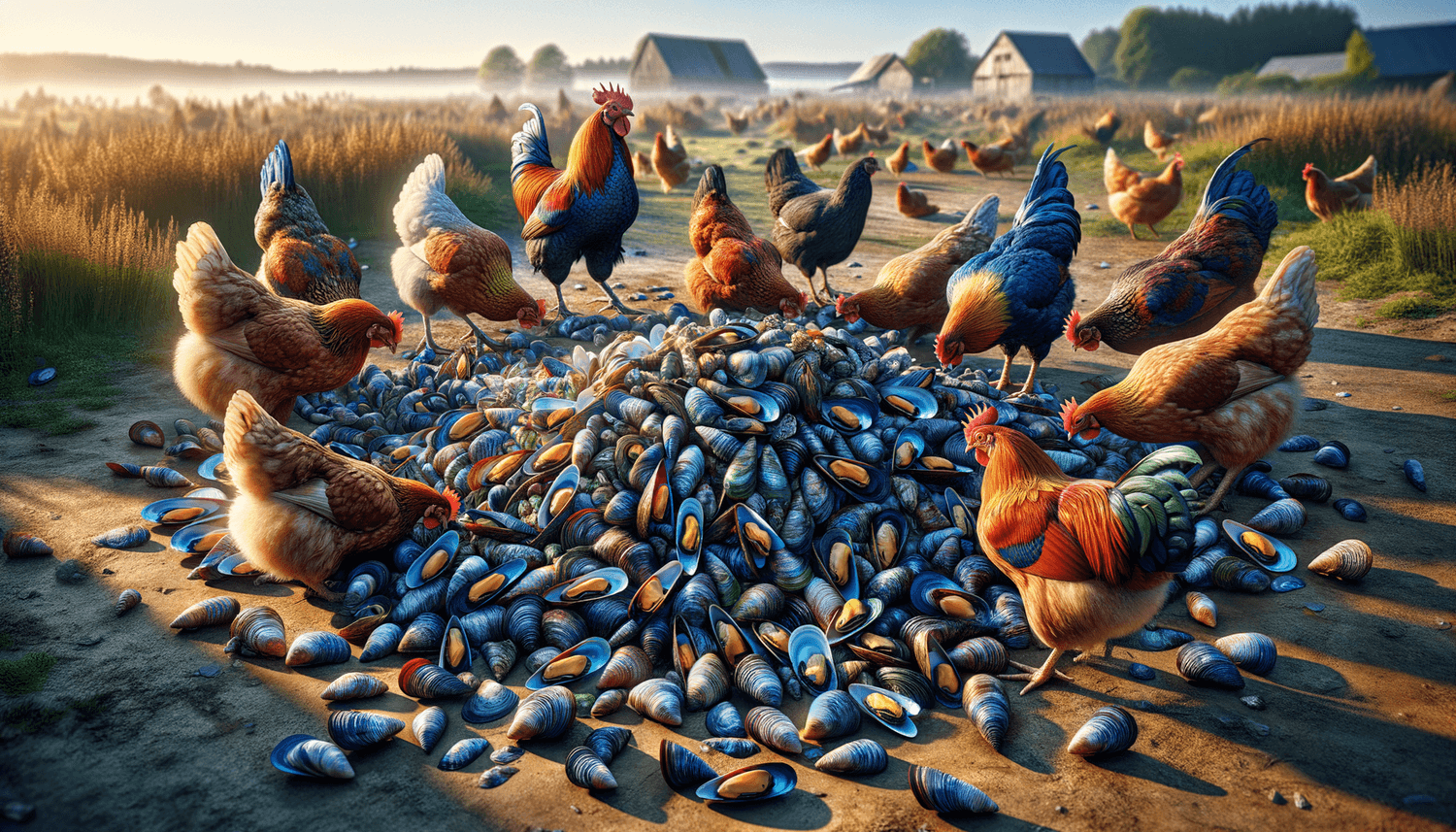Yes, chickens can eat mussel shells. Mussel shells are primarily composed of calcium carbonate, which is beneficial for laying hens as it can help to strengthen their eggshells. However, they should be fed in crushed form to prevent any risk of choking or digestive issues.
Quick Summary
- Chickens can eat mussel shells.
- Mussel shells are rich in calcium, which is essential for eggshell production.
- The primary benefit is enhanced eggshell strength, but there is a risk of choking if not crushed properly.
- Feeding guidelines recommend providing crushed mussel shells free-choice or mixed with feed.
Overview of Mussel Shells
Mussel shells are the hard outer coverings of mussels, a type of shellfish found in freshwater and saltwater environments. These shells consist mostly of calcium carbonate, along with small amounts of other minerals. Once cleaned and dried, mussel shells can be a sustainable source of calcium for poultry.
Benefits and Risks of Mussel Shells for Chickens
Mussel shells offer a high level of calcium, vital for a chicken’s bone health and eggshell quality. However, there is a potential risk if the shells are not crushed into small, digestible pieces. Intact shells could pose a choking hazard or cause internal blockages.
Feeding Guidelines
Crushed mussel shells should be offered to chickens in a separate container so they can consume them as needed. Alternatively, they can be mixed in small amounts with the chickens’ regular feed. It’s important not to overdo it; excessive calcium can cause health issues in non-laying chickens or roosters.
Alternatives
For chicken owners who prefer not to use mussel shells or if they’re unavailable, commercially prepared oyster shell supplements serve as an excellent alternative source of calcium for poultry.
Expert Opinions
Poultry nutritionists and veterinarians often suggest mussel shells as a cost-effective and natural calcium supplement. Studies have indicated that supplemental calcium sources, like mussel shells, can be beneficial, particularly for laying hens that require additional calcium for egg production.
Frequently Asked Questions
After learning that chickens can eat mussel shells, several questions might arise regarding their safe consumption and nutritional benefits. Below are answers to some common queries.
How should mussel shells be prepared before offering them to chickens?
Mussel shells should be thoroughly cleaned, boiled to remove any pathogens, and then dried. After they’re completely dry, they should be crushed into small, gravel-like pieces before being given to chickens to prevent any choking hazards.
Can chicks be given mussel shells?
Chicks should not be given mussel shells, as their dietary needs differ from mature chickens. Chicks require a balanced starter feed specially formulated for their growth needs and cannot properly digest mussel shells.
Is there such a thing as too much calcium from mussel shells for chickens?
Yes, excessive calcium can be detrimental to chickens, especially those not actively laying eggs, as it can affect the balance of other nutrients in their diet and may lead to health issues like kidney damage. It’s important to offer calcium sources like mussel shells in moderation.

















